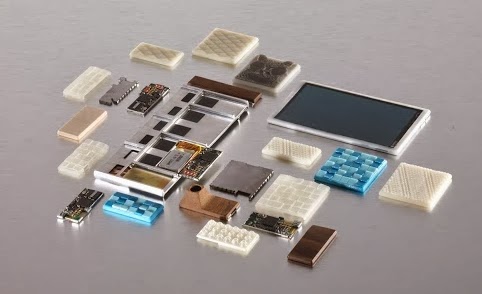
Google’s first Project Ara developers conference kicked off yesterday. One of the first order of business was to confirm that Google was aiming to have its first modular smartphone on sale in January 2015 (with an official announcement at CES 2015 perhaps). As already reported, it will sell for about US$50 if Google decides to sell it at cost. At that price, it will only come with very basic functionality. It will be up to users to take that basic phone and customize it with the modules they want. This customization will be done through an online tool similar to Motorola’s MotoMaker.
Google is calling its first Project Ara smartphone the Gray Phone “because it’s meant to be drab gray to get people to customize it,” according to Paul Eremenko, the project’s lead. But Project Ara is not designed to be an entry-level device. Google is also planning to offer higher-end versions. For example, it is planning one that could cost US$500, again if it is sold at cost.
Entry-level or not, Project Ara devices are expected to have a much longer lifespan than current smartphones. Rather than updating your phone every two years, your Project Ara phone could last five or six as you simply upgrade individual components over that span of time.
Hardware is only a piece of the puzzle that Google has to solve between now and January 2015. Android, the operating system that will power Project Ara, is not designed for a modular architecture. Fortunately, as Eremenko points out, “It’s true that Android does not support dynamic hardware today. The good news is that we’re Google.” Modular support could well be one of the biggest features of Android 5.0.
Google expects to be ready to show off a pre-production Project Ara device around the September time frame. It is also planning to hold two more Project Ara developer conferences this year.
From what was no more than an exciting concept when it was unveiled in late 2013, the team behind it is quickly making progress on making it a reality. Here’s hoping that Project Ara lives up to its expectations.
